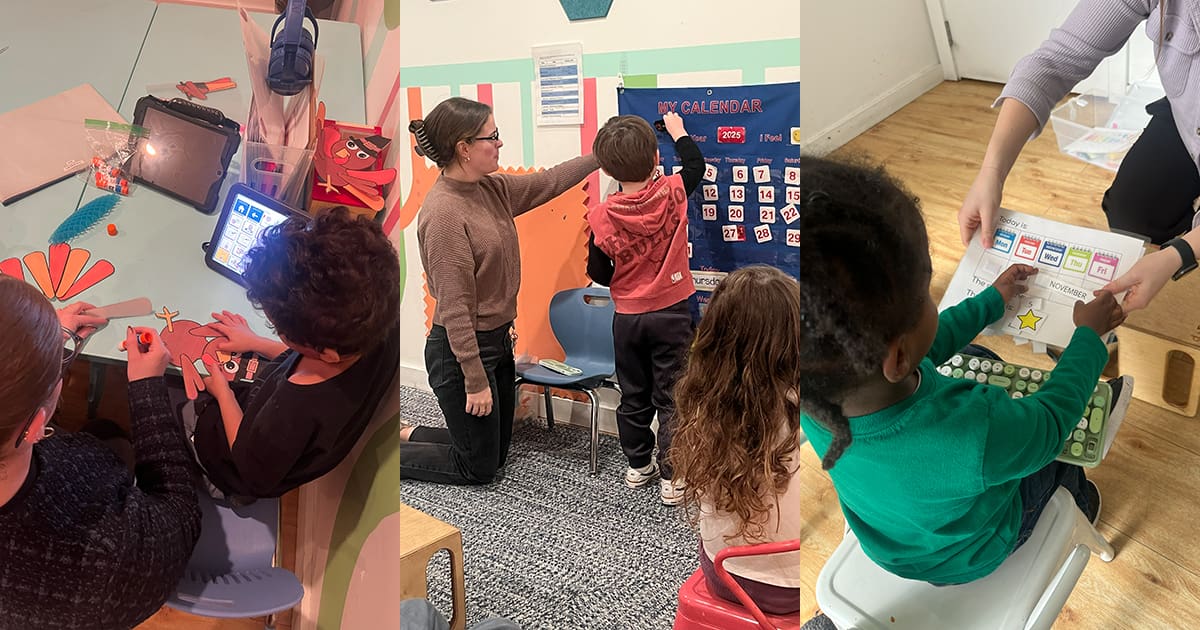Share this Post

An autism diagnosis can bring a mix of emotions—relief in understanding your child’s unique needs, alongside uncertainty about the next steps. If you’re a parent navigating this journey, know that you’re not alone. At CST Academy, we’re here to guide and support you as you take meaningful steps to empower your child.
As you process this new chapter, asking the right questions can help you make informed decisions and feel confident in the path ahead. This article will outline the top questions to ask after receiving an autism diagnosis and provide actionable insights to help you move forward with clarity and purpose.
1. What Does This Diagnosis Mean for My Child’s Development?
Understanding your child’s diagnosis is the first step. Autism spectrum disorder (ASD) affects every child differently, with unique strengths and challenges. Ask your diagnosing professional:
- How does autism affect my child’s communication, social interaction, and behavior?
- What are my child’s developmental strengths?
- Are there specific challenges I should be aware of at this stage?
At CST Academy, we emphasize that every child is unique. Understanding how autism presents in your child will help you tailor interventions and celebrate their progress.
2. What Therapies or Interventions Should We Start First?
Early intervention is critical to helping children with autism develop essential skills. Common therapies include:
- Applied Behavior Analysis (ABA): A research-based approach to improving behavior, communication, and social skills.
- Speech Therapy: Supporting language development and social communication.
- Occupational Therapy: Enhancing sensory processing, fine motor skills, and daily living activities.
Ask your provider to recommend the best therapies for your child’s specific needs. At CST Academy, we create personalized therapy plans to support children at every stage of their development.
3. How Can I Involve My Family in the Therapy Process?
Your family plays a vital role in your child’s progress. Ask:
- What can I do at home to support my child’s development?
- How can siblings, grandparents, and other family members help?
- Are there resources or training sessions available for parents?
We encourage families to stay engaged through open communication, progress updates, and practical strategies for home. Therapy doesn’t end when the session is over—it continues with everyday interactions and routines.
4. What Support Services Are Available for My Family?
Raising a child with autism can bring unique challenges, but you don’t have to face them alone. Ask about:
- Local support groups or parent networks.
- Counseling services for parents or siblings.
- Financial assistance programs for therapy or education.
At CST Academy, we not only provide expert therapy services but also connect families with local and national resources to help lighten the load.
5. How Do I Find the Right Therapy Program?
Choosing the right program can feel overwhelming. Key questions to ask when exploring therapy providers include:
- What is the provider’s approach to therapy?
- Are the therapists certified and experienced?
- How are therapy goals tracked and communicated?
- Is the environment supportive and nurturing?
CST Academy stands out for our evidence-based practices, compassionate team, and personalized care. Our therapeutic preschool and kindergarten programs create a rich, supportive environment where children thrive.
6. How Do I Advocate for My Child’s Needs?
Advocacy ensures your child receives the resources and support they deserve. Ask your providers:
- What rights do I have in the school system?
- How can I create an Individualized Education Program (IEP) or Section 504 Plan?
- What accommodations might my child need in school or other settings?
Our team at CST Academy partners with parents to guide them through the education system, ensuring children have access to the tools they need to succeed.
7. What Does Progress Look Like?
Every child’s journey is unique, and progress may look different for everyone. Ask:
- What developmental milestones should I expect to see?
- How do we measure success?
- How often will goals be reviewed and updated?
At CST Academy, we celebrate every step forward, whether it’s a new word spoken, a social interaction achieved, or a sensory challenge overcome.
8. Are There Resources for Long-Term Planning?
While focusing on immediate needs is essential, it’s also important to think long-term. Ask:
- What should I know about transitioning into school programs?
- Are there resources for life skills development and independence?
- What does support look like for teens and adults with autism?
By planning early and building a strong foundation, you can help your child achieve their fullest potential throughout every stage of life.
9. How Can I Take Care of Myself During This Journey?
Caring for a child with autism is rewarding, but it can also be challenging. Ask:
- What resources are available to help me manage stress?
- Are there parent support groups or workshops I can join?
- How can I balance caregiving with self-care?
At CST Academy, we remind parents that taking care of yourself is just as important as caring for your child. A supported parent is a strong advocate and caregiver.
Start Your Journey with CST Academy
An autism diagnosis is not the end of a story—it’s the beginning of a journey filled with possibilities. By asking the right questions and seeking the best resources, you’re setting your child up for success.
At CST Academy, we’re here to walk alongside you every step of the way. From personalized therapy plans to compassionate support, we’re dedicated to helping children with autism thrive and empowering their families.
Contact us today to learn how CST Academy can make a difference in your child’s journey. Together, we’ll help your child reach their fullest potential.
Discover Our Pediatric Therapy & Autism Care
ABA Therapy
Support for children with autism.
Autism Evaluation
Expert assessments to identify child needs.
Pediatric Therapy Services
Speech, Occupational, Feeding, and Physical Therapy.
Therapeutic Preschool
A classroom environment designed for early learners with unique needs.

CST Academy Is Here to Answer Your Questions After an Autism Diagnosis
Compassionate Autism Care and Guidance for Every Step Forward
When facing the many questions to ask after an autism diagnosis, having the right support makes all the difference. CST Academy provides expert, personalized autism care and is here to answer your questions, ease your concerns, and guide your family through the next steps. With a collaborative team and a full range of integrated therapies, we’re committed to helping your child grow and thrive.

Find the Best Care for Your Child




